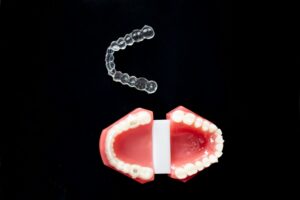The Role of Sleep in Periodontal Health: How a Good Night’s Sleep Impacts Your Gums

While many people understand the connection between brushing, flossing, and gum health, fewer realize the crucial role that high quality sleep plays in maintaining periodontal wellness. Recent research has revealed fascinating connections between sleep patterns and oral health, making it an essential consideration in comprehensive periodontal care.
Sleep’s Impact on Periodontal Health
The relationship between sleep and oral health is complex and multifaceted. During quality sleep, your body undergoes essential repair processes, including the regeneration of gum tissue and the regulation of inflammation. Poor sleep quality can disrupt these vital processes, leading to increased inflammation throughout the body, including your gum tissue. Additionally, lack of sleep weakens your immune system’s ability to fight off oral bacteria, potentially accelerating the progression of periodontal disease.
Sleep deprivation also increases stress hormones in your body, which can contribute to inflammation and delayed healing. This is particularly concerning for patients recovering from periodontal procedures or managing existing gum conditions. Furthermore, elevated stress levels often lead to teeth grinding (bruxism), which can cause significant damage to both teeth and gum tissue over time.
Common Sleep-Related Oral Health Issues
Sleep bruxism, or nighttime teeth grinding, is one of the most common sleep-related conditions affecting periodontal health. The excessive force applied during grinding can damage gum tissue, lead to recession, and even contribute to tooth mobility. Many patients are unaware they grind their teeth until they notice symptoms or their dentist identifies signs of wear.
Sleep apnea, another significant concern, has been strongly linked to periodontal disease. This breathing disorder not only disrupts sleep quality but also leads to mouth breathing, which can cause dry mouth and increase bacterial growth. Studies have shown that patients with sleep apnea have a higher prevalence of periodontal disease, making it crucial to address both conditions for optimal health outcomes.
Protecting Your Periodontal Health at Night
Maintaining good sleep hygiene is essential for protecting your periodontal health. This includes establishing a consistent sleep schedule, creating a comfortable sleep environment, and managing stress levels before bedtime. For patients who grind their teeth, a custom-fitted night guard can provide crucial protection for both teeth and gums.
Proper humidity levels in your bedroom can help prevent dry mouth, while sleeping on your back with your head slightly elevated can reduce the likelihood of mouth breathing. It’s also important to maintain your evening oral care routine, ensuring your mouth is clean before sleep when saliva production naturally decreases.

Professional Care and Monitoring
At North Carolina Implants & Periodontics, we understand the intricate relationship between sleep and periodontal health. During your consultations, we’ll discuss your sleep patterns and any related concerns that might affect your treatment outcomes. Our comprehensive approach includes evaluating potential sleep-related factors contributing to your periodontal condition and developing personalized treatment strategies that address both immediate concerns and long-term prevention.
If you’re experiencing any signs of sleep-related oral health issues or are concerned about how your sleep habits might be affecting your periodontal health, we encourage you to schedule a consultation with our experienced team. Together, we can develop a tailored treatment plan that considers all aspects of your health, ensuring the best possible outcomes for your smile.
